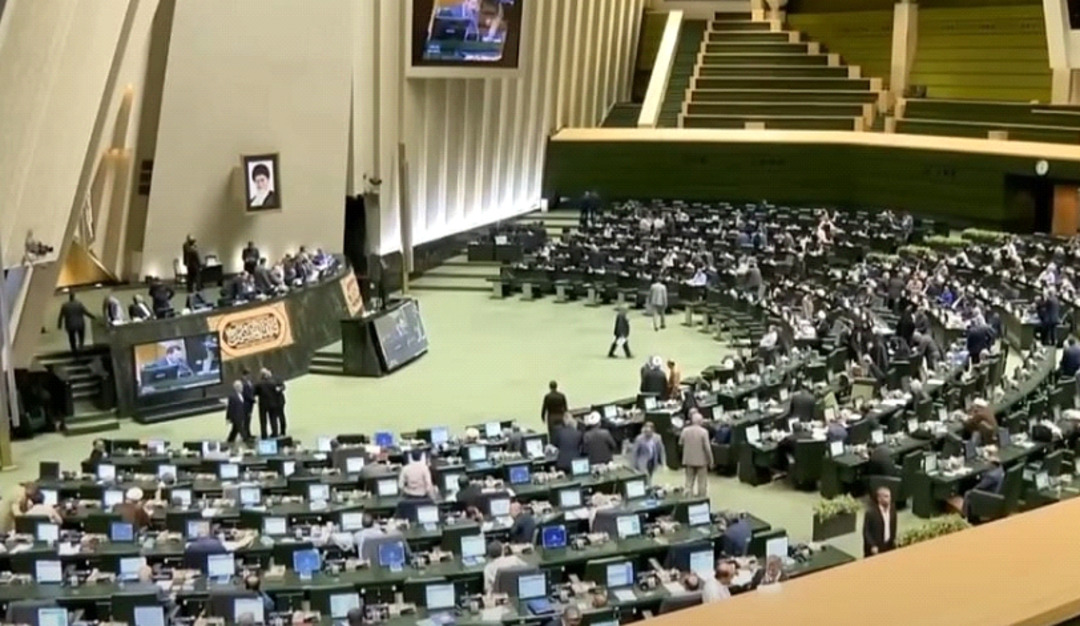-
Iran: The "False Content" Law Stifles Freedom and Fuels Resistance

By: Farid Mahoutchi
In a new move to silence the voice of the people, the Iranian regime passed a controversial law on July 27, 2025, titled "Counteracting the Spread of False News Content." The regime promotes this law as a means to combat misinformation, but in reality, it is a weapon to deepen censorship, criminalize opposition, and establish the state's monopoly on truth. Amid economic crises and escalating social unrest, this law reflects the regime's fear of collapse, as Iranians turn to the internet to reveal the truth and organize protests.
Unprecedented Digital Suppression
The law has sparked rare criticism even within the regime. Parliamentarians wrote to regime leader Ebrahim Raisi, warning that the law would widen the gap between the regime and the people. However, these objections seem driven more by fears of public anger than a defense of freedoms.
Commentator Abbas Abdi warned in the newspaper Etemad that the law would lead to "truth monopolization," fueling propaganda. Legal expert Mohsen Borhani pointed out in Shargh newspaper the danger of replacing "spreading falsehoods" with "false content," a formulation that criminalizes even partial truths and allows arbitrary enforcement. Punishments are severe: from six months to 15 years in prison, and in some cases, charges of "corruption on earth," which could lead to execution.
Frightening Impact on Society
Even Nournews, associated with the Supreme National Security Council, questioned whether the law is the result of "security pressures" or genuine transparency. MP Farid Mousavi warned that criminalizing ambiguous online content amid a crisis of trust and economic difficulties is a "dangerous step." Yet, supported by Supreme Leader Ali Khamenei, the regime proceeded, passing the law with 205 votes in favor and 49 against.
A Grim Digital Reality
The "Freedom on the Internet 2024" report by Freedom House documents a dire digital landscape in Iran, rating it as "Not Free" with a score of 12 out of 100. Between June 2023 and May 2024, the report revealed:
- Censorship and Isolation: Expansion of the national information network to isolate Iranians, a 30-40% increase in internet prices, VPN bans, and restrictions on platforms like WhatsApp, Instagram, and X.
- Surveillance: Use of SIAM software and AI tools to track users and enforce hijab laws.
- Repression: Detaining journalists and bloggers, issuing death sentences on vague charges, and harsh enforcement of the hijab and chastity laws.
- Shutdowns: Nationwide internet blackouts, such as the closure of 28 provinces on November 20, 2023, to suppress protests.
- Propaganda: Managing disinformation farms and content editing to erase regime crimes.
- Social Impact: Extensive self-censorship, 50% business losses, targeting women and minorities.
- Cyberattacks: Attacking opponents with malicious software.
Resilience of the People and Global Call from Rome
Despite repression, Iranians continue to resist online and on the streets. On July 31, 2025, the Italian Parliament hosted the "Free Iran 2025" conference, where Mrs. Maryam Rajavi, the elected President of the National Council of Resistance of Iran, denounced the "False Content" law as a tool for suppressing the voice of the people. She stated: "The Iranian people, supported by resistance units, are challenging censorship to overthrow the dictatorship." Senator Giulio Terszi supported this stance, emphasizing the need to list the Revolutionary Guard Corps as a terrorist organization to combat regime repression and its support for regional terrorism in countries like Lebanon and Yemen. He urged the Arab world to stand in solidarity with Iranians in pursuit of their freedom and regional stability.
The Resilience of the People
Despite repression, Iranians continue to resist through the internet and on the streets. Women defy hijab laws, and activists spread the truth despite the risks of imprisonment and execution. However, the new law makes resistance more costly than ever before. It is not just censorship — it’s a desperate attempt by a regime afraid of collapse.
The world must condemn this law and support the resilience of the Iranian people. Will silence continue to be complicity in this repression? Freedom awaits the world's response.
You May Also Like
Popular Posts
Caricature
opinion
Report
ads
Newsletter
Subscribe to our mailing list to get the new updates!






















